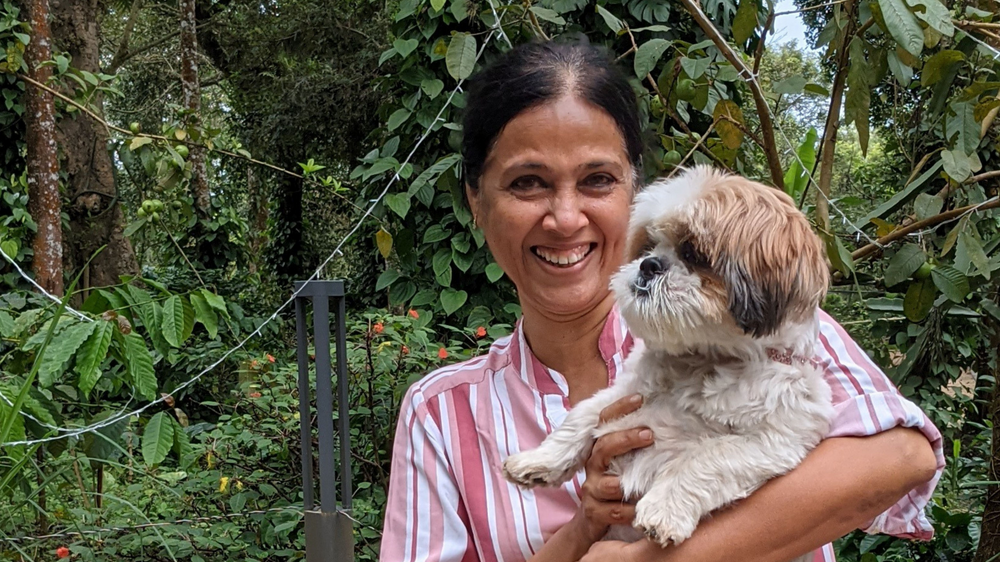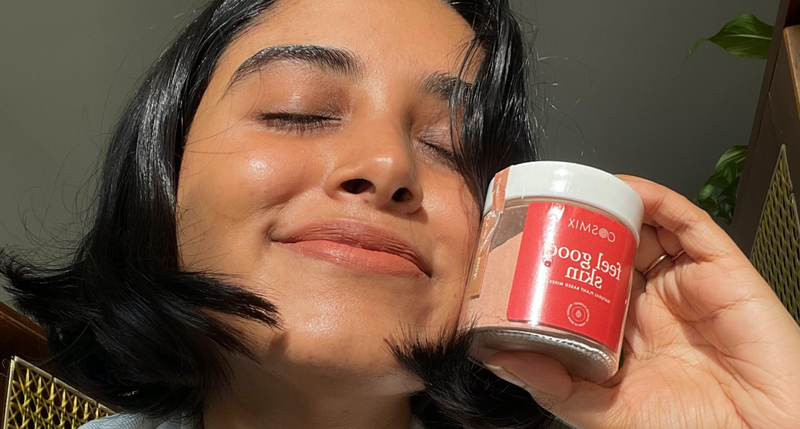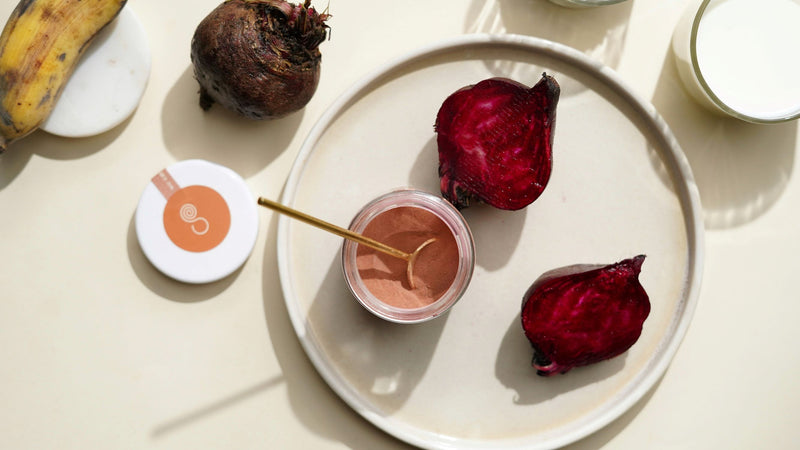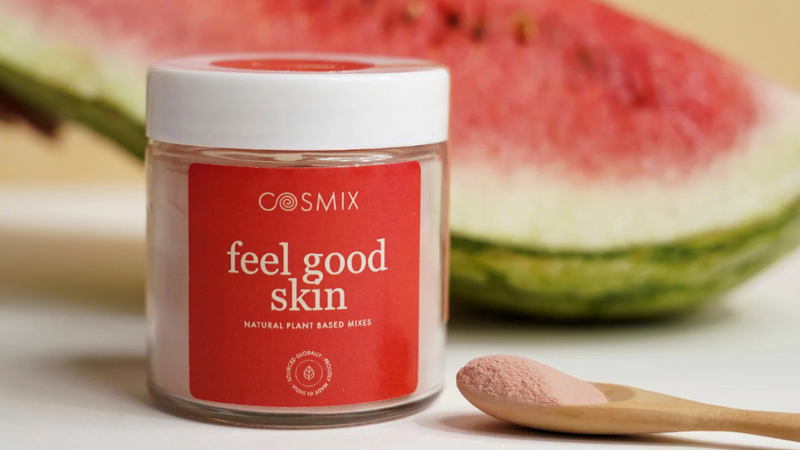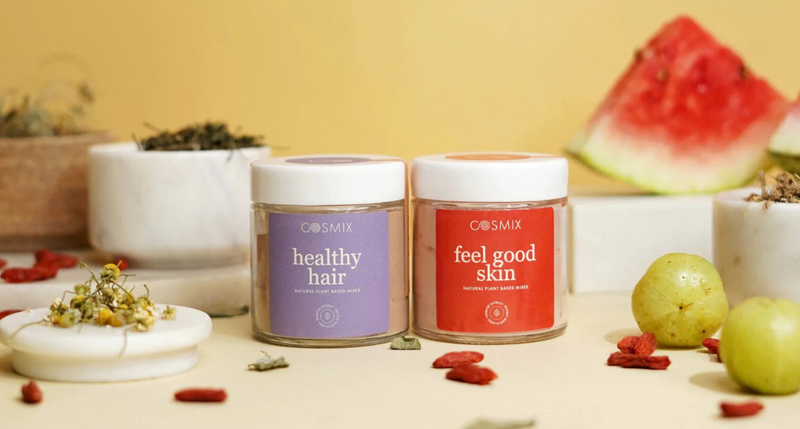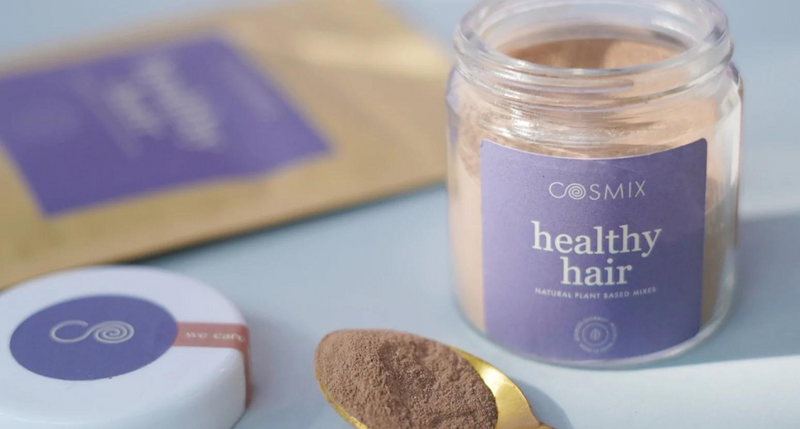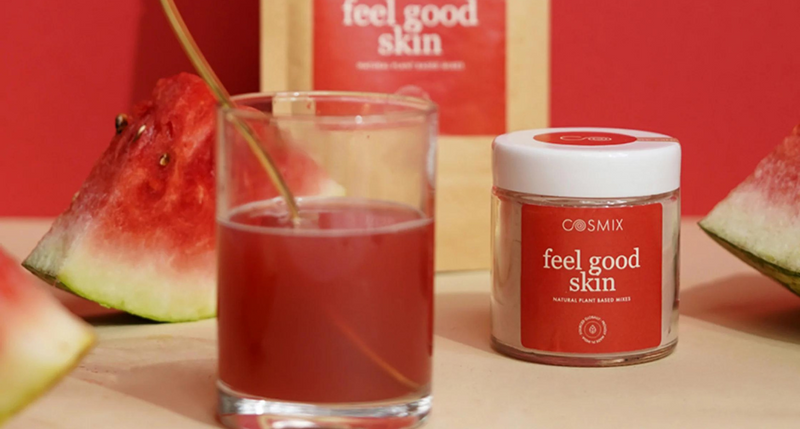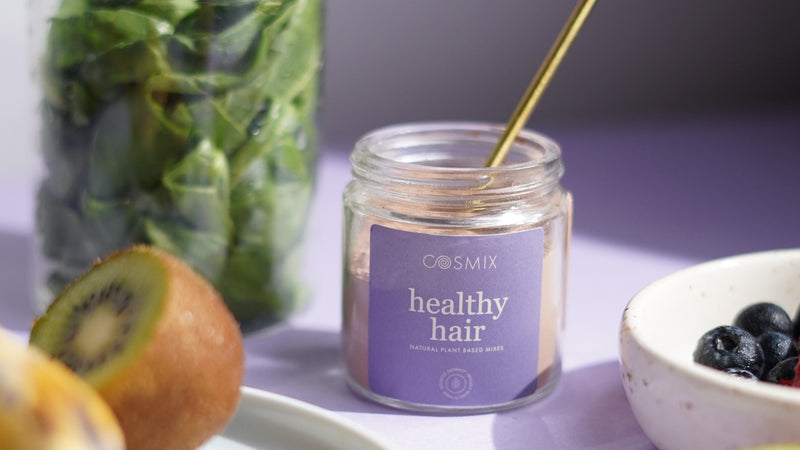There is a turning point in all our lives when we become aware of our changing bodies - a line appears on your skin, or your body feels different, or you’ve even come across stray grey hair!
For a part of the body whose primary purpose is just to keep you warm - it’s not fair to attach unrealistic beauty standards to your hair. Of course, the state of your hair is a direct reflection of your internal health and is worth the attention.
And that’s precisely why we came up with our healthy hair mix. But seemingly healthy hair isn’t good enough for society - it has to fit into the ideals of beauty too.
But should something as natural as greying hair, a cause for concern OR conversation?
To get our questions (and yours) answered, we caught up with Homoeopathic doctor (and our founder’s mum) Dr. Rashmi Closepet, who recently decided to go grey.
Read on to know more about the cause of grey hair, the role of genetics and stress on it, and even about finding acceptance in ageing gracefully.
Q: What exactly triggers the greying of hair?
A: The greying of hair is a natural phase we all go through, especially in your 30’s and 40’s as your body is not producing as many pigment cells. So the hair’s melanin production slows down, causing your hair to lighten. However, there are conditions and medications that can cause premature grey hair as well.
Vitamin B12 deficiency, iron deficiency, copper deficiency, and zinc deficiency can cause premature grey hair as well as thyroid issues, poor circulation, neurodegenerative disorders, (any conditions that weaken nervous system/spine), many skin conditions such as vitiligo and alopecia as well. Those who do excessive chemical treatments on their hair - like heat styling or dyeing - are thought to be more likely to experience premature greying.
Q: Does the greying of hair all have to do with genetics?
A: Much of science points to genes as a dominant factor in the greying process of hair, but in my opinion, it mostly has to do with the fact that people usually have similar lifestyles, eating habits, and stress management patterns as their parents and grandparents but there is no way to “scientifically” measure this so it gets chalked up to “genetics.”
Q: What are some ways to prolong the natural color and delay greying?
A: Some ways to prolong the natural pigment and melanin in our hair is by finding healthier ways to manage our stress and letting go of alcohol, smoking, and anything that takes a toll on our organs (especially our detox systems: blood, liver, kidney). 
Q: What are some things to do, to reduce stress and to improve our lifestyle?
A: Healing any oxidative stress or chronic inflammation in our bodies can be a huge help in allowing our bodies more time until our hair begins greying. This means letting go of certain foods in our life such as saturated fats, processed sugars, processed foods, red meats, dairy, soda, etc. (basically anything that causes inflammation in the body which can be unique to the individual). Consuming more antioxidant rich foods like berries, leafy greens, and foods and herbs that address iron, zinc, b12, and copper deficiencies.
Q: What are your thoughts on the perception of “grey hair” in society?
A: I know our society basically pushes old people to the side but once upon a time greying hair was a sign of wisdom. It’s nice to see more women embracing their natural greying hair because it used to signify who was an elder that achieved spiritual maturity and knowledge. It’s a natural process but I understand why in our society women feel the need to dye their hair. Maybe the solution would be to come up with different options like healthier hair dyes or different ways to embrace grey hair and include examples from cultures that still hold this process in high regard.
- -
…And that's on developing a better approach towards your hair's health and appearance. We hope this little conversation can help you find peace and comfort with your hair, no matter where it's at.
If you’ve got more questions, do leave them as comments.




